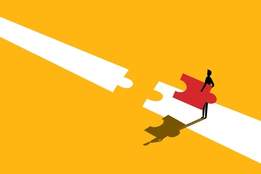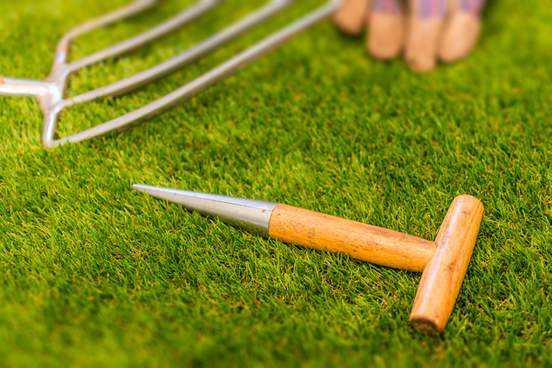
Dibble
Definition:
dibble : a small hand implement used to make holes in the ground for plants, seeds, or bulbs
Example Sentence:
A dibble is a pointed stick. Fancy catalogs call it a dibble and charge twenty five bucks for it, but it’s still a pointed stick. You shove it in the ground to make a hole. It doesn’t work very well.
— Duane Campbell, The Daily Review (Towanda, Pennsylvania), 19 Nov. 2022
Origin:
Dibble comes from the Middle English word debylle, used for the same gardening tool, which is sometimes also called a “dibber.” Not all gardeners agree on its efficacy or lack thereof.
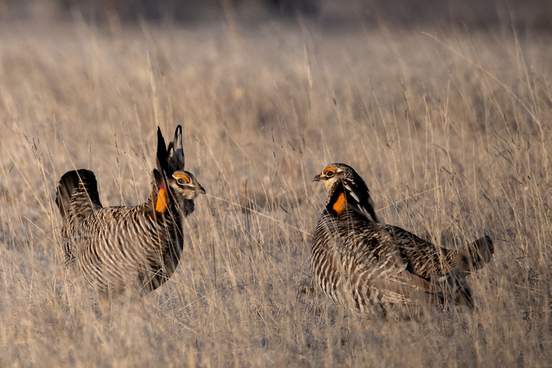
Lek
Definition:
lek : an assembly area where animals (such as the prairie chicken) carry on display and courtship behavior
Example Sentence:
White-ruffed manakins will take turns displaying when a female drops by, although it’s likely the more dominant bird will get to mate. In other cases, several manakins will display for their peers in what seems to be a practice run before the females arrive. And some manakins will gather in leks, or arenas where many male animals can strut their stuff at once. This lets females compare prospective mates.
— Kate Baggaley, Popular Science, 9 Feb. 2018
Origin:
Lek is a shortening of the Swedish word lekställe (“mating ground”) which is a combination of lek (“mating, sport”) and ställe (“place”).

Tragus
Definition
tragus : the prominence in front of the external opening of the outer ear
Example Sentence:
Across the board, all of our experts agreed that there’s one place [on the ear] you should get pierced if you’re looking to avoid an excruciating experience (though all agreed that pain is relative and personal, so hey, you never know if that tragus piercing may not be so bad after all).
— Shea Simmons, Bustle.com, 3 Feb. 2021
Origin:
Tragus comes from the Greek word tragos, meaning “he-goat.” According to hearsay, the Greek word was influenced by Peloponnesian tragedy. In this style of drama, satyrs were represented as goatlike creatures, and their prominent ears became associated with a feature of our own human ears.

Snifter
Definition:
snifter : a short-stemmed goblet with a bowl narrowing toward the top
Example Sentence:
Justine Belle Lambright, co-founder of Kalchē, a wine cooperative in Fletcher, Vermont, says the shift in glassware is also indicative of a change in wine’s leadership. … They also point out that we, as a culture, have become more transient, and thus have acquired fewer delicate objects; the idea of inheriting traditional stemware like crystal-cut Waterford is simply out of vogue. In Vermont, Lambright has also noticed that beer culture dominates glassware; short-stemmed snifters and goblets often take the place of a wine glass and may just as easily double as a water vessel.
— Leslie Pariseau, PunchDrink.com, 8 Mar. 2022
Origin:
Snifter has long been used in British English as a verb meaning “to sniff” or “to snort.” Its uses as a noun to refer to “a small drink of distilled liquor” and also “a short-stemmed goblet…” both originated in the United States. The distinct shape of a snifter concentrates the aromas of adult beverage for the drinker’s olfactory enjoyment.
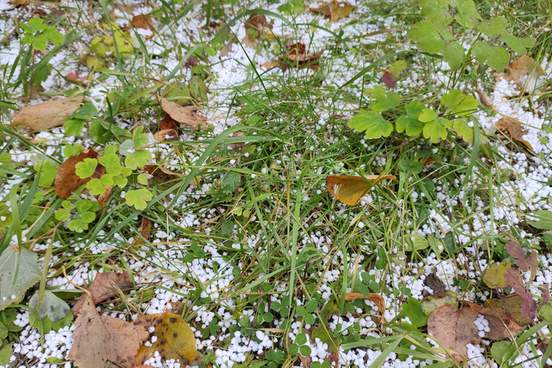
Graupel
Definition:
graupel : granular snow pellets
Example Sentence:
Collisions between the graupel and crystals yield negatively charged graupel in the middle to lower part of the cloud and positively charged crystals at the top of the cloud. Scientists think this big difference in charge between the two parts of the cloud causes lightning.
— Will Sullivan, InsideScience.org, 5 Jan. 2022
Origin:
The word graupel is Germanic in origin; it is the diminutive of Graupe, meaning “pearl barley.” If you’ve ever encountered the distinct look and feel of graupel, you’ll understand how the name stuck … or froze.
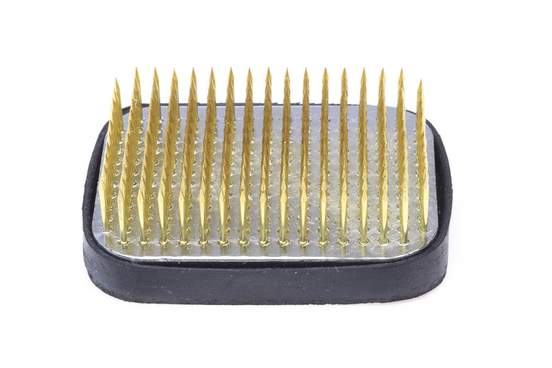
Frog
Definition:
frog : a small holder (as of metal, glass, or plastic) with perforations or spikes for holding flowers in place in a bowl or vase
Example Sentence:
[Author Lorene Edwards] Forkner prefers not to use the floral foam that most florists use to hold the bouquet together. Instead, she hunts for old fashion flower frogs at thrift stores and garage sales. … Forkner also uses waded-up balls of chicken wire as a frog and sticks the bouquet stems into it.
— Pat Munts, The Spokesman Review (Spokane, Washington), 18 Aug. 2022
Origin:
Frog, as the common word for a variety of largely aquatic leaping amphibians, comes from the Old English frogga and is related to the Old High German word frosk, both also referring to the animal. The origins of this sense of frog, however, are unknown and likely distinct.

Spile
Definition:
spile : a spout inserted in a tree to draw off sap
Example Sentence:
The couple’s first batch of homemade maple syrup was their favorite: a dark amber-colored liquid with an intensely maple flavor. The eight gallons of sap generated about three cups of maple syrup. A second batch yielded a much lighter, golden-hued syrup that resembled a thinner and sweeter version of honey. They completed a third boil session—one per weekend—and when the tree ran dry in mid-March, they took the spile out and covered the hole.
— Brianna Kudisch, NJ.com, 6 Apr. 2022
Origin:
Etymologists believe that spile probably comes from the Dutch spijl, meaning “stake.”
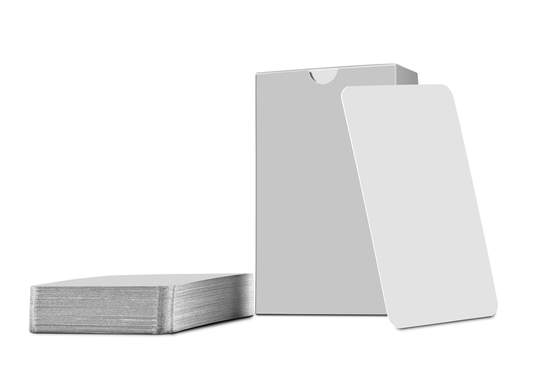
Talon
Definition:
talon : the portion of a pack of cards not distributed to the players at the beginning of a game
Example Sentence:
In several games, only some of the cards are dealt out. In such games, you put a parcel of undealt cards in a pile in the middle of the table. This pile is known as the stock or the talon. Frequently, the dealer turns the top card of the stock face-up for one reason or another, and this card is known as the up-card.
— Barry Rigel, Card Games for Dummies (Wiley, 2022)
About the Word:
In addition to being synonymous with stock in a number of card games for multiple players, talon is also used specifically for the pile of discarded, unplayable cards in a game of solitaire.
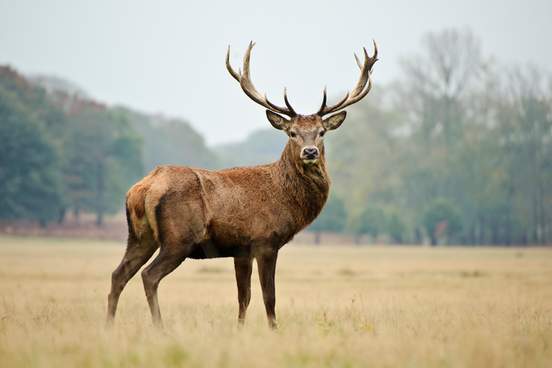
Bez tine
Definition
bez tine : the second tine from the base of a stag’s antler
Example Sentence:
Thanks to everyone who had a go at identifying the ‘mystery object’ I was recently photographed holding. Obviously, said object is an antler. So, well done if you got that bit right. But it’s a very weird antler. It obviously comes from one of the larger deer species … Unlike the majority of cervine deer, however, it lacks the relatively short brow and bez tines that normally project … from near the base of the main beam.
— Darren Naish, Scientific American, 11 Oct. 2011
Origin:
To put a fine point on it, the bez in bez tine comes from the Old French bes meaning “twice.” Other names for the bez tine include bez antler, bes antler, and bay antler.
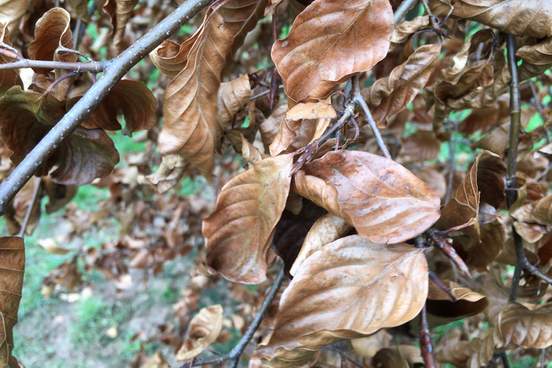
Marcescence
Definition:
marcescence : the quality or state (as of leaves or other plant parts) of withering without falling off
Example Sentence:
[Douglas W. Tallamy’s] latest book is written in a welcoming and engaging style but does not shy away from science. I gained a deeper understanding of the biology of oaks and their interconnectedness to their habitat as well as facts about leaf marcescence and keystone plants.
— Sally Peterson, OregonLive.com, 26 Apr. 2021
Origin:
Marcescence, as well as both the adjective and noun marcescent, come ultimately from the Latin verb marcēre, meaning “to wither.” If you live in a northern temperate climate with lots of oak and beech trees—both known for their leaves’ marcescence—you’ll notice that their leaves hang on until wind or precipitation whisks them away. Some leaves even manage to hold on until the spring when new foliage unfurls.





